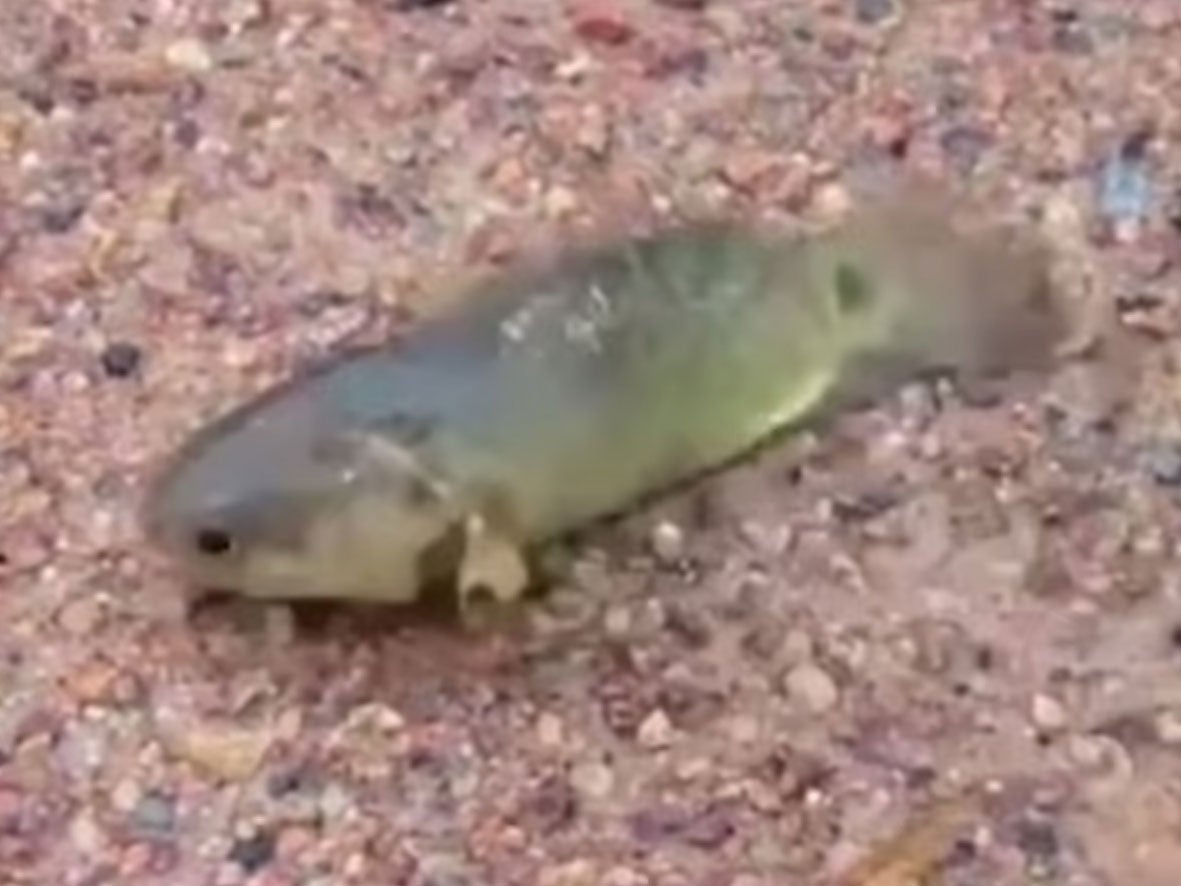Fish which can walk out of water and breathe on land for six days 'could spell major disaster' for wildlife in Australia
The aggressive climbing perch has lungs as well as gills

Your support helps us to tell the story
From reproductive rights to climate change to Big Tech, The Independent is on the ground when the story is developing. Whether it's investigating the financials of Elon Musk's pro-Trump PAC or producing our latest documentary, 'The A Word', which shines a light on the American women fighting for reproductive rights, we know how important it is to parse out the facts from the messaging.
At such a critical moment in US history, we need reporters on the ground. Your donation allows us to keep sending journalists to speak to both sides of the story.
The Independent is trusted by Americans across the entire political spectrum. And unlike many other quality news outlets, we choose not to lock Americans out of our reporting and analysis with paywalls. We believe quality journalism should be available to everyone, paid for by those who can afford it.
Your support makes all the difference.A bizarre and seemingly super-powered fish which can walk out of water and breathe on land for up to six days could spell a 'major disaster' for wildlife, scientists have warned.
The aggressive climbing perch, which has lungs as well as gills, has been discovered in northern Australia.
And according to James Cook University researchers, the creature could cause a ‘major disaster’ for Australian wildlife if it thrives there.
Sawfish 'virgin births': Species procreates without males
Hawaii fisherman dies after being impaled by swordfish's bill
The fish, a native of Papua New Guinea, can kill birds and larger fish by swelling up inside their windpipes and choking them, Metro reported.
Only a few have been sighted on land in Australia so far, but scientists are said to be monitoring their progress.
Ecologist Nathan Waltham warned: "When they populate an area they’re not commonly found in, they can disrupt the balance of that habitat."
Join our commenting forum
Join thought-provoking conversations, follow other Independent readers and see their replies
Comments